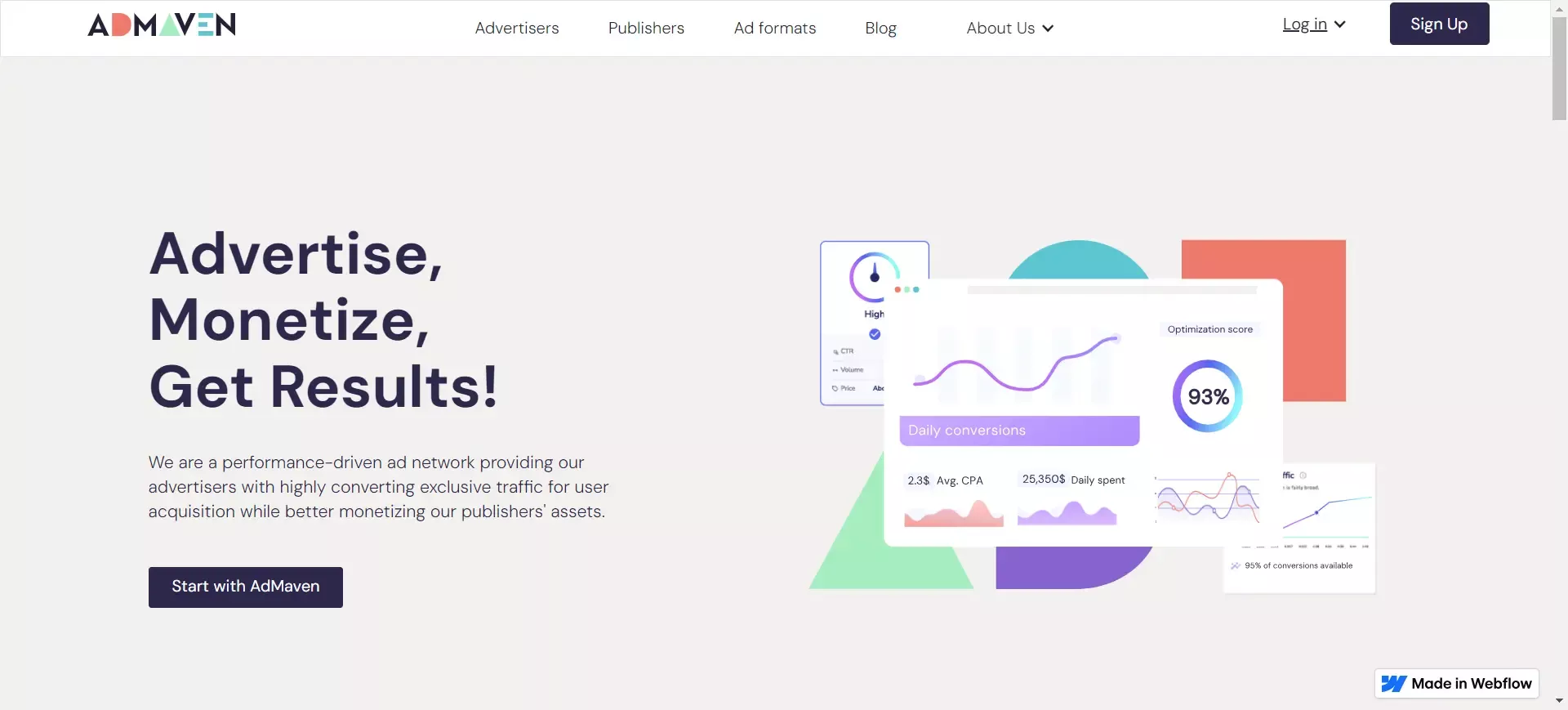How Programmatic Auctions Work: Insights for Publishers
-
 By Editorial Staff
By Editorial Staff
-
25 March 23
The ad auction is instrumental in choosing the ads that will appear on your pages and also deciding the potential earning from those ads. All ads bring different amounts of money, and that is dependent on a couple of factors, like the advertiser’s bid for the ads. The ads that win in the auction start to appear on your website, app, or other digital property.
The ad auction was curated to ensure that you get the best possible revenue for your ad space. When you see the number of advertisers' bids to show on your pages increasing, you know that the competition for your inventory is high, and so is the potential income.
Summary
-
How Programmatic Auctions Work: Insights for Publishers
- Model for Open and Private Auctions
Model for Open and Private Auctions:
Ad Exchange decides who the winning bidder is in accordance with the highest net bid submitted. The net bid shows whatever adjustments Ad Exchange may have made to the submitted bid to optimize the auction. Google’s revenue share is taken into account in the net bid.
Irrespective of whether or not adjustments are made, the winning buyer has to pay only the amount for the bid he submits. If the amounts of the net bids given have a difference of very small margin, the winning bid is chosen at random.
The closing price of an auction is decided on the basis of the highest net bid in the auction.
With the purpose of optimization of an auction, Google may choose to shut an auction at a price lower than the reserve price, which would have been applied in normal cases. In such a case, the winning bidder may pay a price that is lower than the reserve price, which automatically gives him a discount on his bid. A buyer that has previously gotten discounts on its bids may witness high reserve prices in the upcoming transactions to offset the discounts.
In accordance with the terms that govern the use of Ad Exchange, sellers are paid the closing price, which is decided in accordance with the highest net bid in the auction, but receive nothing less than the minimum CPM floor price that is specified for the auction. Unless the seller disables the “Average revenue share” settings, auction optimizations may cause an auction that closes at a price lower than the reserve price, which would have been applicable otherwise. The seller, irrespective of everything, will be paid the specified CPM floor price, and the seller may get more than its contracted revenue share on the transaction. However, in the transactions that follow, the seller’s revenue share may be reduced to offset the extra earnings against the contracted revenue share, but the seller will always receive at least the minimum contracted revenue share across all its Ad Exchange transactions conducted in a month.
Based on the two criteria, the bids on ad requests become eligible for Private auctions and may compete with bids from the Open Auction-
- Concurrently if allowed the publisher
- Subsequently, if Private Auctions do not fill the ad requests.
With the purpose of optimization of the auctions, ad exchange runs a given number of specially designed experiments that includes modification of the standard auction model or mechanics, for instance- a tiered auction instead of the first price auction, simulation of bid requests, and auctions, altering the lowest CPM floor price which is set by the seller for an impression or adjustment of seller settings, or offering a discount of certain bids that are submitted by the buyers or changing the priority status of the bids submitted by the buyers. However, they never modify- “advertisers/brands” and “buyer” blocks in the “ad content” rules under Protections.
| Recommended Software | Category | Why Choose? | Signup URL |
|---|---|---|---|
| Setupad | Website Monetization | High CPMs, On time payments | Signup here |
| Refinery89 | Website Monetization | Easy installation, High CPMs | Signup here |
Blog FAQs

Editorial Staff at Publisher Growth is a team of blogging and AdTech experts adept at creating how-to, tutorials, listings, and reviews that can publishers run their online businesses in a better way.
View All PostsOur Editors’ Pick:
Browse these amazing publisher monetization tools handpicked by our team of editors

























